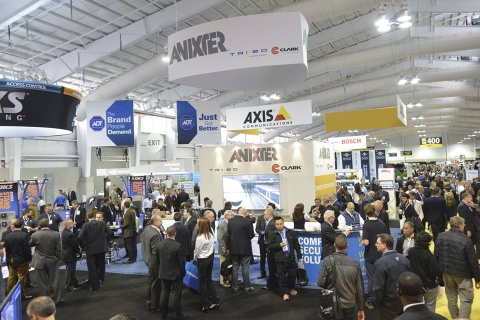Events with Strong Brands See Big Benefits

By Elizabeth Johnson
‘Branding’ is perhaps the most commonly used, but most commonly misunderstood, word in business. Reactions to brands, such as Coca-Cola or Apple, are immediate. An organization or product with a strong brand may compel people to instantly think of its logo, or tagline or jingle. A brand, by definition is all of those things and more - it’s everything we think about a particular organization or product.
A strong event brand offers its audiences a promise on the value it will deliver. And then, it uses communications tools to deliver the message of that promise. A strong brand also informs all of the programming and operational decisions of the show. Events of all sizes and scopes that have invested in intentional branding campaigns have seen real benefits in event growth, awareness attendee satisfaction and achievement of the event owner’s broader business goals, mission and vision.
For years, SCANPO (South Carolina Association of Nonprofit Organizations) used a theme to promote the SCANPO Annual Conference. That theme didn’t necessarily have much to do with the topics discussed.
“In 2014, we underwent a rebranding effort, evolving the Conference to a Summit and ultimately naming it, ‘South Carolina Nonprofit Summit hosted by SCANPO’ so that event belongs to the sector rather than the organization,” said Madeleine McGee, president of SCANPO.
Since the rebrand, the state-wide summit has grown by almost 50 percent requiring it to move to a larger venue to accommodate more attendees in 2016. A second benefit is that it opened the door for subsector groups to convene their own constituents at the summit. Finally, the name was less cumbersome and offered SCANPO flexibility to strengthen the organization’s brand in the future apart from the event.
DDW (Digestive Disease Week) is sponsored by four organizations. It built a brand that incorporated elements, such as color, from each of the organizations in 2010. The goal of the brand is that it was recognized by attendees from year-to-year and to prospects around the world.
“With a strong brand, we are able to have name recognition around the world,” said Alison Moser, director of marketing at American Gastroenterological Association. “It’s hard to find someone in the GI field who doesn’t know about DDW!”
ISC West and ISC East security industry shows work together under the same overall brand, but have very different audiences and positioning. While ISC West is the larger, global opportunity for the entire supply chair to come together to see what is new for their business, the value-proposition for ISC East, until recently, wasn’t as clearly defined.
Just under five years ago, ISC East was struggling; declining in attendance and exhibit space, when Reed Exhibitions rebranded the event.
“We did a lot of research - both qualitative and quantitative - we conducted focus groups, identified pinch points and conducted ethnography where we literally walked in our attendees shoes,” said Ed Several, senior vice president at Reed.
That in-depth research to really understand the customer needs went a long way in shaping a brand that today targets the right people with exactly what they are looking for. ISC East is highly targeted to the middle of the security distribution chain. Its square footage sales, attendee satisfaction scores and net promoter scores are all up and the show is growing rapidly.
Another well-branded event, ‘The Liver Meeting’ was a result of attendees nicknaming the Annual Meeting of the American Association of Study of Liver Disease (AASLD) and for years, the brand was delivering great results, but after a while, there was a catch - no one knew AASLD sponsored the event.
AASLD took a three-step process to align the two brands so that both could benefit from each other’s value. As a result, membership in the association grew 38 percent between 2011 and 2015.
“Now we’re able to tie the value of the meeting brand to the association,” said AASLD Director of Marketing Martha Sauchuk. “We use the event as a platform to introduce attendees to our other offerings, such as membership, online education, and our smaller events.”
Once it’s clear an event benefits from an intentional branding effort, the next step is to learn how to brand an event. Tune in to TSNN’s free webinar, “Don’t Let Your Brand Itself” on April 14 at 1 p.m. ET to learn more about event branding. Complimentary registration is HERE.


Add new comment